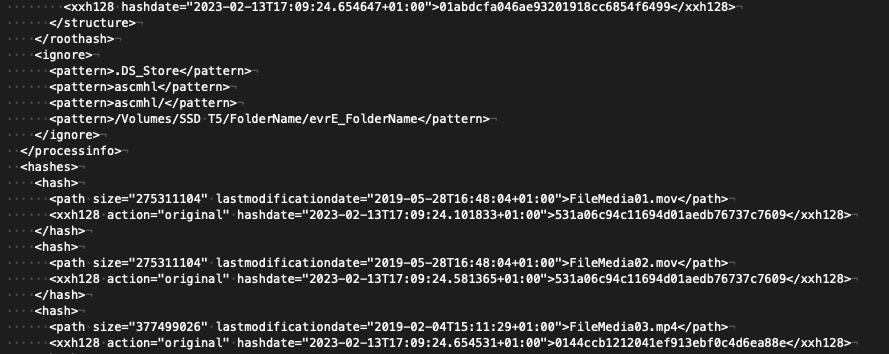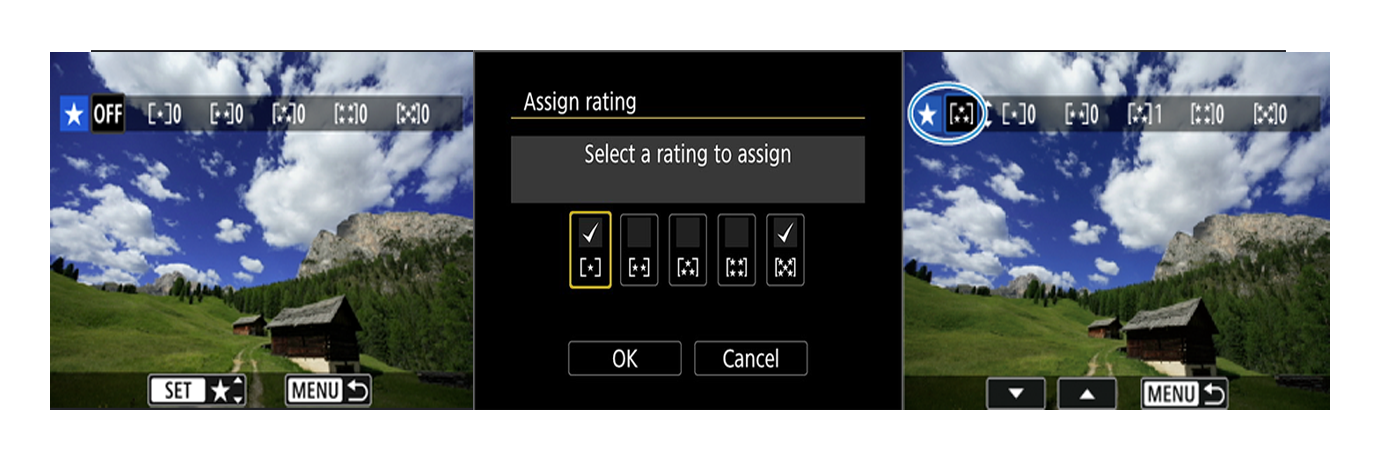What is MHL?
MHL (Media Hash List) is a standard for verifying the integrity of digital media files. It uses cryptographic hash functions such as SHA-256 to generate a unique hash value for each media file. The hash value is then stored in a MHL file, which can be used to check the integrity of the media file at a later time.
Why it's used?
The MHL standard provides a way to ensure that media files have not been altered or corrupted, and to ensure that the content of the file is exactly what was intended. The hash value in the MHL file serves as a "fingerprint" for the media file, and any changes to the media file will result in a different hash value, indicating that the file has been altered.
Where it's used?
The MHL standard is used in various industries, such as the film and television production industry, to ensure the authenticity and integrity of media files during production, post-production, and distribution. By verifying the integrity of media files with the MHL standard, users can be confident that the content of the file is exactly what was intended and that it has not been altered or corrupted in any way.
What's about ASC MHL?
ASC MHL (American Society of Cinematographers Media Hash List) is a standard for verifying the integrity of digital media files. It is a open-source, community-driven standard developed by the American Society of Cinematographers (ASC), a professional organization of cinematographers founded in 1919. The organization is dedicated to advancing the art and craft of cinematography and promoting the contributions of cinematographers to the film and television industry.
ASC MHL is similar to other Media Hash List (MHL) standards, but it has a few key differences. It is designed to be a more flexible and scalable solution for verifying the integrity of large media files, and it uses a variety of hash algorithms to ensure the authenticity and integrity of the media.
By using the ASC MHL standard, users in the film and television industry can have confidence in the authenticity and integrity of their media files, which is crucial for the production, post-production, and distribution process. Additionally, the open-source nature of the ASC MHL standard means that it is transparent, secure, and accessible to the community, making it a valuable tool for verifying the integrity of digital media.
How can I create Media Hash List for my media file?
You can create a Media Hash List (MHL) for your media file using evrExpanse software. The software allows you to create MHL files as part of its batch file processing tool. The MHL files are in accordance with the ASC Media Hash List (ASC MHL) format specification, which is maintained by the American Society of Cinematographers (ASC).
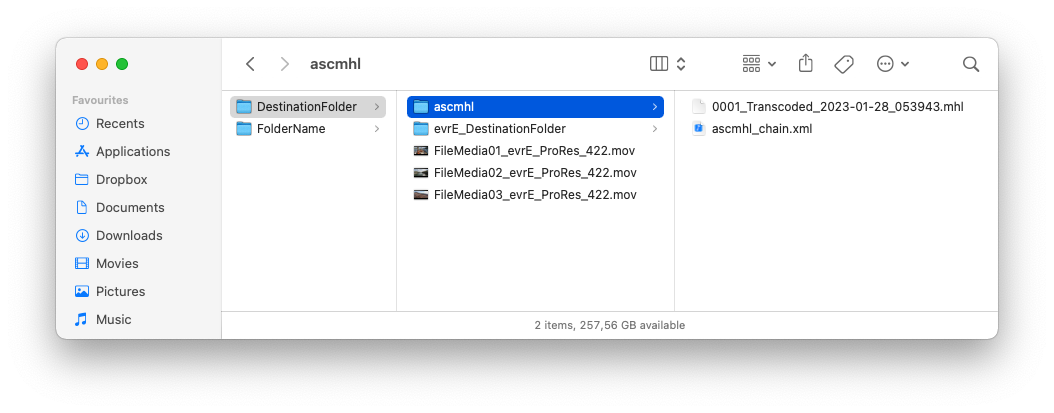
Once I have created ASC MHL files how can I check if a file has been altered or corrupted or if any files are missing?
You can verify the integrity of an ASC MHL-protected media file by using a tool such as ASC MHL evrToolbox, which can compute the hashes of the media files and compare them with the hashes stored in the MHL file. If there are any differences, it can indicate that the media files have been altered or corrupted, or that some files are missing. This tool is free of charge and can be used for any ASC MHLs produced according to the standard specification.
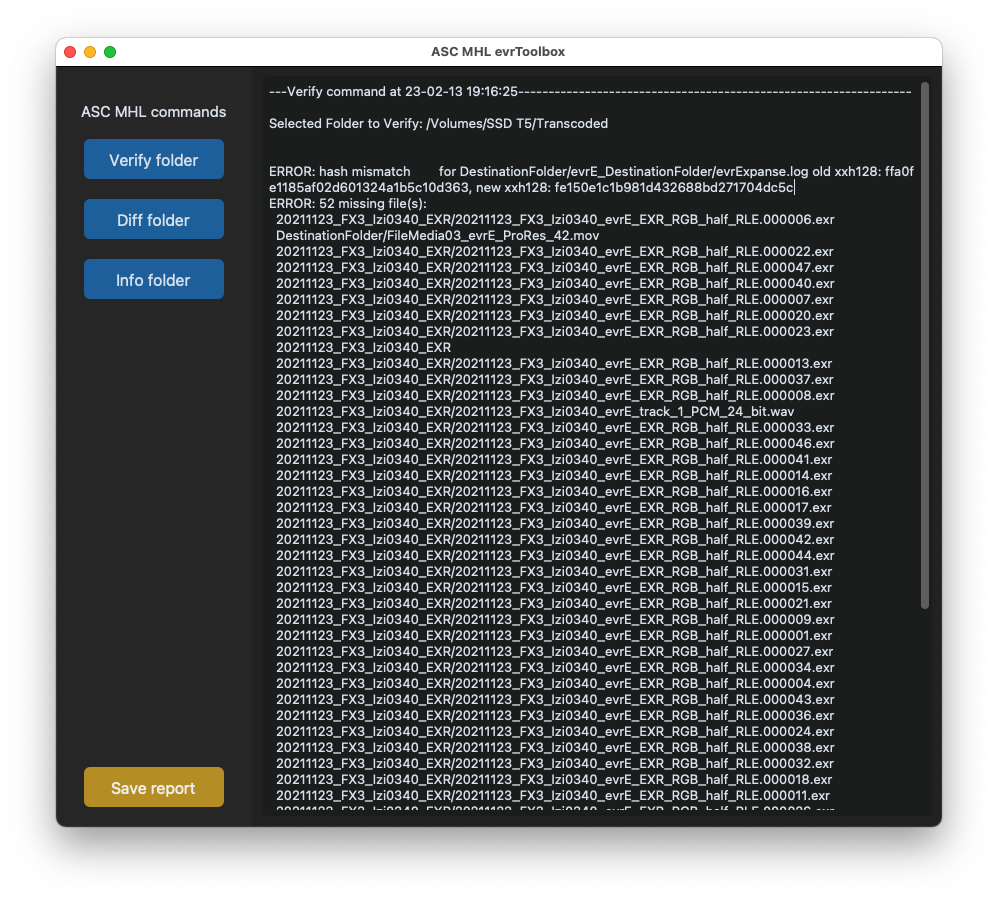
The ASC MHL evrToolbox is a free tool verifies the integrity of your media files with ease. The user-friendly GUI integrates with the ASC MHL command line tool, making it simple to ensure the authenticity of your media.
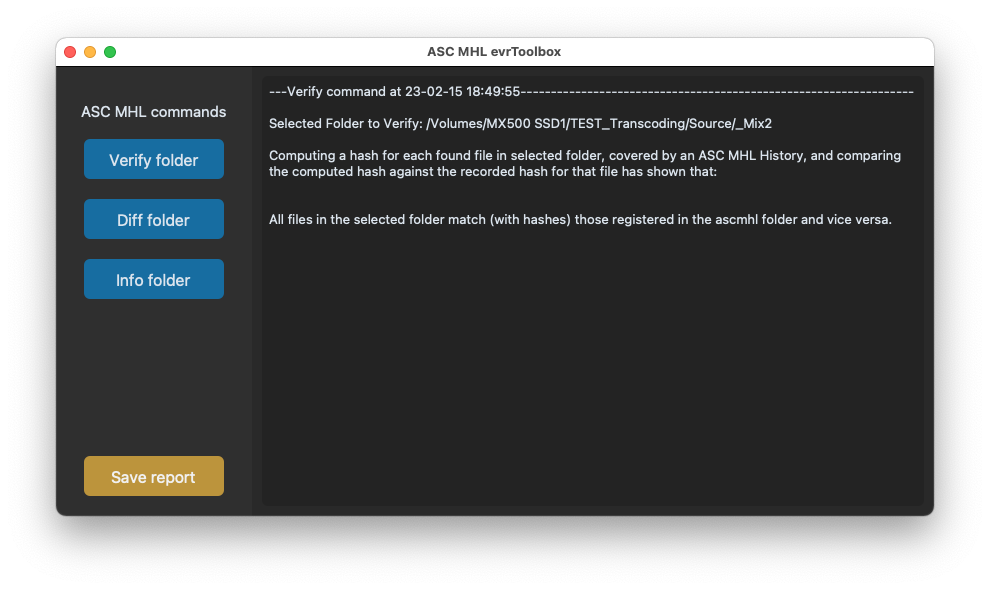
The ASC MHL evrToolbox is designed to be able to check the integrity of media files, regardless of the software used to create the media hash list, as long as the hash list follows the ASC MHL specifications. This is one of the benefits of having a standardised format for media hash lists, as it allows for greater interoperability and compatibility between different software and systems.
The ASC MHL evrToolbox is designed to work seamlessly with evrExpanse and is a great verification tool for those who need to receive files. By using both tools, users can ensure the integrity of their media files throughout the entire production process. evrExpanse can calculate and verify the media hash list, while ASC MHL evrToolbox can be used to verify the files against the hash list and provide a report on any discrepancies. This ensures that files have not been corrupted or altered during the transfer or storage process, which is crucial for maintaining the quality and integrity of the production.
